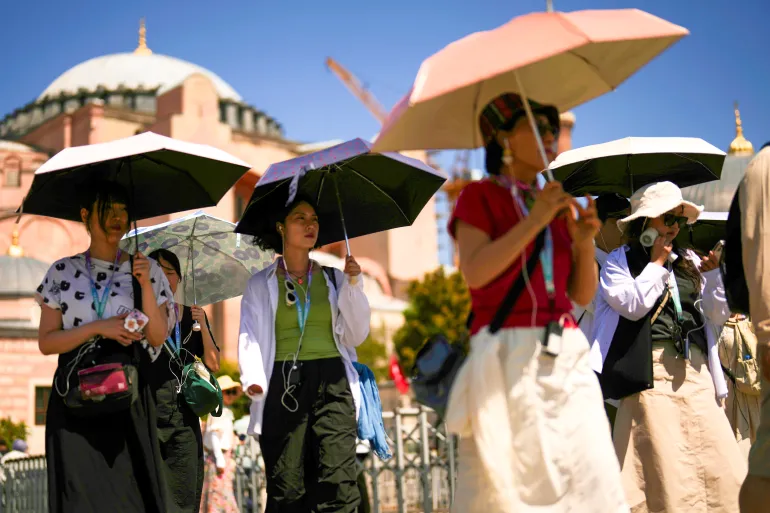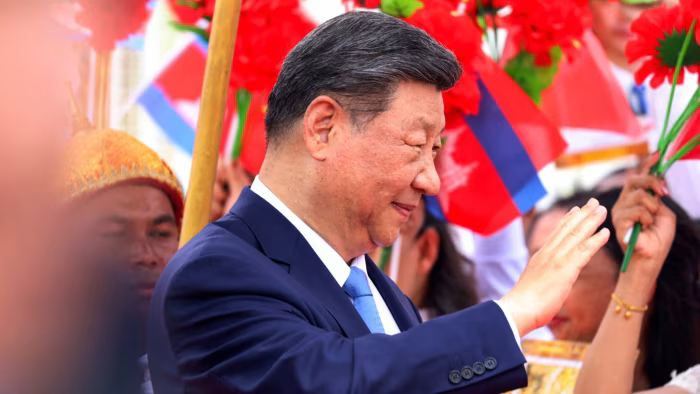China is exploring the suspension of certain retaliatory tariffs on US imports as economic pressures mount, signaling a potential easing in trade tensions—even as Chinese officials maintain that no formal negotiations with the United States are currently underway.
According to sources familiar with the matter, China is reviewing its 125% tariffs on specific US goods, including critical imports like medical equipment and industrial chemicals such as ethane, a key input for plastics manufacturing. While some companies report that exemptions have already been granted, particularly in sectors like aviation and pharmaceuticals, Chinese authorities have not officially confirmed these developments.
The move reflects a growing recognition in Beijing that the trade war is imposing unsustainable costs on domestic industries.
“It’s good to see that both sides are reviewing the tariffs,” said Michael Hart, president of the American Chamber of Commerce in China.
He noted that some member companies had received tariff-free shipments in recent days, though these appeared to be one-off exemptions rather than part of a formal policy.
One notable exemption involves semiconductors, a vital component of the tech industry. Several import agencies in Shenzhen reported that certain integrated circuits made in the US are no longer subject to the punitive tariffs. While the exemptions have not been publicly acknowledged by Chinese customs, the waivers have been quietly communicated to some firms.
Meanwhile, US President Donald Trump has asserted that trade talks are ongoing, a claim Beijing has refuted. China’s foreign ministry reiterated this week that no direct negotiations are taking place and called on Washington to remove all unilateral tariff measures as a precondition for any future discussions.
Market reactions have been cautiously optimistic. The US dollar ticked higher and equity markets in Asia gained slightly, suggesting investor hopes for a potential de-escalation. Still, the broader uncertainty surrounding trade policy continues to weigh heavily on multinational businesses, prompting some—like Apple—to reconfigure their supply chains to reduce dependence on China.
The exemptions come as part of a broader effort by the Chinese government to stabilize the economy. President Xi Jinping recently called for emergency measures to support domestic consumption and businesses, amid concerns over rising unemployment and lingering property sector woes.
In parallel, the US has introduced its own measures, including a rollback of guidance that previously limited banks’ exposure to the crypto sector and a renewed push to secure critical minerals through deep-sea mining. These steps reflect Washington’s broader strategy to enhance economic resilience as geopolitical tensions persist.
While the mutual easing of tariffs—however limited—could lay groundwork for improved dialogue, analysts caution that both sides remain far from a comprehensive resolution.
“Neither the US nor China wants to be seen as backing down first,” said Alfredo Montufar-Helu, a senior adviser at the Conference Board’s China Center. “These exemptions may signal a tactical pause, but not a change in strategic direction.”
For now, businesses are advised to navigate the uncertainty with caution. Wealth experts suggest diversifying investments geographically and sectorally, pointing to European pharmaceuticals, Japanese equities, and luxury goods as potential safe havens amid the turmoil.
With input from Reuters, the Financial Times, Bloomberg, and CNN.










The latest news in your social feeds
Subscribe to our social media platforms to stay tuned